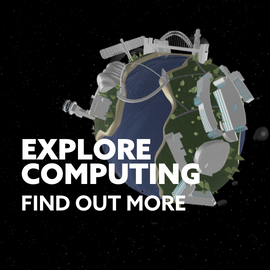In this module, you will learn about the entire data life cycle (from creation to disposal) and will gain a deep understanding of classical database development processes and approaches to modelling, design and management of databases. You will be able to learn and employ data warehousing techniques to integrate and consolidate data from different sources, which can then be used for business reporting, exploratory data analysis and advanced data analytics. In addition, you will realise the responsibilities of database designers with respect to professional, legal, security and ethical issues as well as undertaking risk management and evaluation of commercial risk in relation to data management. Moreover, you get an appreciation of non-traditional data types, systems and applications (e.g., NoSQL Databases), data standards and data quality. The module will covers topics such as:
• An overview of the entire data life cycle (e.g., creation, modelling, representation, usage, maintenance, disposal, etc)
• Classical data engineering processes and approaches (modelling, design, implementation and management and access of databases)
• Data warehousing
• Non-traditional data management technologies (e.g., NoSQL databases)
• Data analytics
• Data standards and data quality
More information
 Option for Placement Year
Option for Placement Year Option for Study Abroad
Option for Study Abroad


















